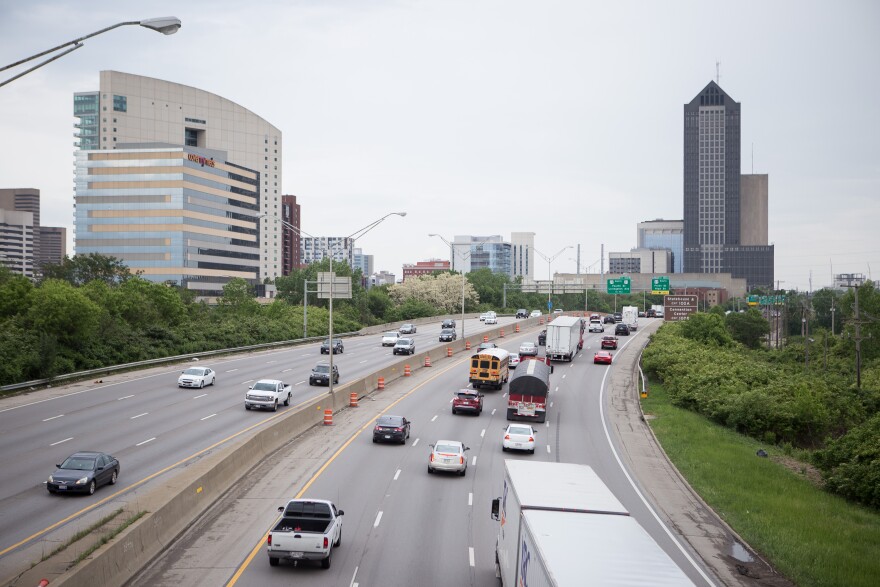Speeding on Ohio's roadways is up during the coronavirus pandemic, according to new research from The Ohio State University. While many drivers stay home, researchers found on a section of I-270 on Columbus' west side speeding has averaged 7-28 miles per hour above the speed limit.
Collecting information from a private transportation company, Ohio State geography professor Harvey Miller and his colleagues examined highways and major roads in the state's three largest cities from March 28 to April 19, and compared them to the same three-week period last year.
Traffic data from Columbus, Cleveland and Cincinnati showed the average level of speeding was up slightly this year. However, extreme speeding, 20-30 miles above the limit, was up significantly.
Around Columbus, the number of road segments where speeding increased more than tripled. The number of road segments where speeding increased in Cincinnati and Cleveland more than doubled.
In all three cities, the average level of speeding has increased between 2.1 and 2.6 miles per hour. However, all three cities have many more road segments that experienced higher levels of speeding.

“In many of these places the speeding has not gone up a lot on average, but the extremes, the levels of extreme speeding, have gone up dramatically,” Miller said.
Miller says that means, even with fewer cars, highways are probably more dangerous now where drivers are using highways like a race course.
"One thing about congestion, as bad as it is, it actually makes things safer in the sense that cars don't travel as fast,” he says. “But at higher speeds, we have greater risk and we also have greater consequence."





